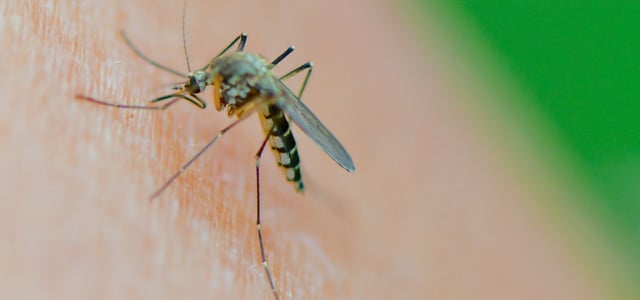
“Half the world’s population is now at risk of dengue,” explains the World Health Organization (WHO). There are also first infections in Europe.
The World Health Organization (WHO) is concerned about the spread of the dengue virus, including in Europe. It is transmitted by Aedes mosquitoes, which live in tropical and subtropical climates. But they are spreading worldwide. The number of annual cases has increased eightfold since 2000, to an estimated 4.2 million last year, said Raman Velayudhan, head of the WHO’s neglected tropical diseases department, on Friday in Geneva. “Now half of the world’s population is at risk of dengue,” he said.
In the WHO European region, there have already been local infections in around two dozen countries, including Spain and France. According to the European health authority ECDC, no local infections have been reported this year. Heatwaves with particularly high temperatures are more likely to dry out mosquito breeding grounds and reduce the risk of being bitten, Velayudhan said. But he called on all countries to be vigilant when rain sets in again. The mosquitoes breed in standing water.
Overall, the WHO assumes up to 400 million infections worldwide. It is difficult to estimate because 80 percent of those affected have hardly any or only mild symptoms when they first become infected and do not go to the doctor at all. You are then immune to one of the four dengue viruses. In the case of a second infection with one of the other three viruses, the disease could be more severe and life-threatening, said Velayudhan. Dengue fever was formerly called breakbone fever because it can cause severe body aches.
By July this year, North, Central and South America had reported as many infections and deaths as all of last year, Velayudhan said. In 2022 there were 2.8 million infections and 1280 deaths.
Avoid standing water
There are no medications for dengue except those that reduce fever. Velayudhan referred to a vaccine that is on the market, but which only offers protection after an initial infection. Dengvaxia is more or less effective depending on what other virus you contract, Velayudhan said. According to the Paul Ehrlich Institute (PEI), which is responsible for Germany, it is intended for people between the ages of 9 and 45 who live in areas where dengue is widespread. The PEI also refers to another vaccine called Qdenga, which in Germany can be injected into people from the age of four – even before the first dengue infection. It was approved in the EU in December 2022.
Velayudhan advised protecting yourself with mosquito spray and avoiding standing water around the house because mosquitoes breed in it. They bite during the day, so mosquito nets for sleeping are not effective against these mosquitoes.
Read more on Techzle.com:
- Ticks, mosquitoes, contaminated food: How the climate crisis endangers health
- Forest fires in Greece: thousands of holidaymakers evacuated
- WHO: Cats infected with bird flu are pandemic warning